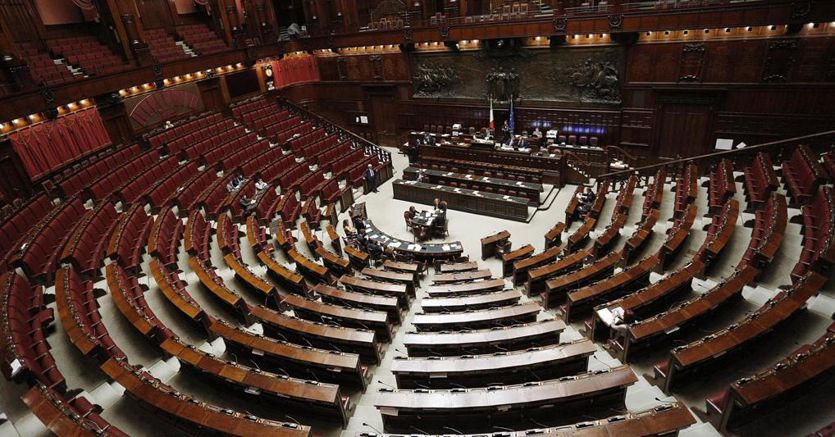Regardless of who will win the political elections on 25 September, there is already a certainty. Parliament will not be the same as before. There will be two “unpublished” chambers, lost by about 30% of parliamentarians, those that will meet at the end of October after the passing of the polls. The constitutional reform launched in 2020 has in fact reduced the number of deputies from 630 to 400 and that of elected senators from 315 to 200, to which the five senators for life will be added.
Unknown on the functionality of parliamentary bodies
An unprecedented structure and configuration, with the consequence that questions about parliamentary activity arise. While in fact the scissoring will solve the atavistic problems of working spaces for parliamentarians and groups, there are questions about the functionality of the bodies, especially for the Senate.
The reduction in the number of permanent committees in the Senate
The Aula of Palazzo Madama reduces the number of permanent Commissions from 14 to 10 by merging some of them (Foreign and Defense, Environment and Public Works, Industry and Agriculture, Labor and Health). And small and medium-sized groups will have one or two senators on each commission, which will prevent their specialization and will require greater recourse to external technicians and the legislators of the ministries.
The Bicameral Commissions node
The other problem concerns the Bicameral Commissions and Bodies, such as Copasir, Rai Vigilanza, Antimafia. These, for example, must avoid meeting in the early afternoon (when there are no works in the two classrooms) in conjunction with the permanent committees of the Chamber and Senate, under penalty of missing the quorum in one or the other. . Therefore, for the Bicamerals, calls are coming at sunrise or sunset. All steps that will be made indispensable by the new parliamentary structure decided by politics. And that perhaps will bring with it the need for other fundamental reforms such as the presidential one invoked by the Brothers of Italy or the one on autonomy advocated by the League.
Confrontation on the new electoral law
In the background, the debate for a new electoral law that can give government stability to the winning coalitions. A problem felt by all sides, so much so as to make the governor of Liguria Giovanni Toti say in front of the parterre of Communion and Liberation that the current law seems more a perversion than an instrument of application of consent. And the Democratic Party explains in its program that it is essential to make the Italian political system stronger, participated and transparent. For this reason, “the bad electoral law with which we go to vote must be changed, because the blocked lists demean the role of the parliamentarian, they condition his behavior” Hence the proposal of new rules to be proposed to Parliament from the first months of next legislature to overcome fragmentation, transformism, to reduce the distorting effects on representation linked to the cut of parliamentarians and to favor the construction of stable political forces with a recognizable identity ». In the meantime, however, we go to the polls with the old rules.
